Description
Journal of Indian Health Psychology is fully devoted to diverse kind of empirical as well as theoretical investigations in the field of health psychology as one of the key issues faced by the contemporary world. It integrates two or more disciplines and provides a general platform for communication and cooperation among psychologists and health educationists in India and the world. The aims of the journal are promoting health and prevent illness by applying psychological principles. For example, positive thinking, positive emotions, optimism, social support, positive feeling, positive mental attitude not only improve the quality of people’s lives but also heal their bodies from illness and stresses. On the other hand, negative emotions and feelings bring poisonous toxins to the organism. Strong negations such as anger, spite, envy, jealousy, and fear make the endocrine system accumulate in the blood. There is increasing evidence that grief, depression, and other negative feelings are linked with increased risk of organic (like cancer) and infectious (like cold) diseases. For example, recent bereavement has been linked with the number of diseases, such as coronary heart disease (CHD), tuberculosis, allergies and peptic ulcer. Stress related negative emotions tend to suppress body’s immune system over an extended period of time, rendering the person vulnerable to a host of diseases. Therefore, having a positive meaning and purpose in life will not only add years to one’s life, but also add life to one’s years.
It is our pleasure to mention that scholars from different region of India contributed their articles, research paper and short communications. In the article section, Mathur has draw attention to various definition of mental health and addressed some ways for mental health care from psychological and other perspectives. Khan et al., discuss the efficacy of different interventions in the management of pain in cancer patients. The article suggests that medical practitioner dealing with cancer patient should use psychological intervention in their medical practices because, psychological interventions such as cognitive-behaviour therapy promotes the health of individuals. On the issue of healing Srivastava and Maheshwari call attention to Yoga in the healing of psycho-physiological disorders. They argue that Yoga is potent technique in the management of stress.
In the research article section, Singh et al., examined the role of psychosocial contributors on pathways to well-being. The results of study indicate that social support, purpose in life and leisure activities contribute significantly in maintaining the well-being of the elderly. Singh and Singh find out the effect of life events stress on mental health of managers and the role of coping in stress-health relationship. The results point out that mental health significantly differs between high and low stress group. The predictors of mental health were coping, job negative and positive stress, and coping has somewhat moderating effect in stress-health relationship. Attending the issues of female teachers, Meena Kumari has investigated personality and self related cognitions in low and high burnout female teachers. She found that high burnout group scored high on psychoticism, neuroticism, lie score, type A behaviour, ideal-real self-concept, discrepancy and burnout. The findings of study suggest that counseling should be provided to reduce burn out of female teachers. Mathur examined the social skills problem in children and the effect of parenting practices. Social skills problems predicted by the gender, parent’s personality make up, uninvolved parenting, eco status and mother’s education. The study indicates that parents and teachers can reduce social skills problem of children and counseling if needed, should be provided to the children.
In the short communication section, Husain emphasises the incorporation of spirituality in counselor education and training. Spirituality can help the counselor to become more understanding of him and can help him change things that he does not like or that adversely affect his relationship with his clients and others. Kaushik highlights the problems of elderly and suggests counseling and therapy to reduce their problem.
Editors express thanks to the contributors. Hope, this issue will inspire and generate interest among researchers, educationists, psychologists, policy-makers and professionals to understand the health problems and their solutions.
Editorial report does not owe to the data and ideas incorporated in the articles to which the contributors are solely responsible. Commentaries and reactions may be addressed to them directly.
Contents
| Editorial | iii | |
| Articles | ||
| 1 | Mental Health Care for Better Living | 151 |
| Purnima Mathur | ||
| 2 | The Management of Pain in Cancer Patients Through Psychological Intervention | 167 |
| S. R. Khan, Shiveta Gandotra & Probhjot Kour | ||
| 3 | Yoga and Psychophysiological Disorders | 186 |
| S. K. Srivastava and Sweta Maheshwari | ||
| Research Articles | ||
| 4 | The Role of Psychosocial Contributors on Pathways to Well-being | 195 |
| Shyodan Singh, Meenakshi Malik & Reema | ||
| 5 | Effect of Life Events Stress on Mental Health of Managers: The Role of Coping | 205 |
| A.P. Singh & A.K. Singh | ||
| 6 | Personality and Self-related Cognitions in High and Low Burnout Female Teachers | 217 |
| Meena Kumari | ||
| 7 | Social Skills Problem in Children: A study of parenting practices | 226 |
| Madhu Mathur | ||
| Short communications | ||
| 8 | Spirituality: The New Frontier for Counselor Education and Training | 233 |
| Akbar Husain | ||
| 9 | Challenges of Working with Older Adults in Twenty First Century | 238 |
| Sandhya Singh Kaushik | ||
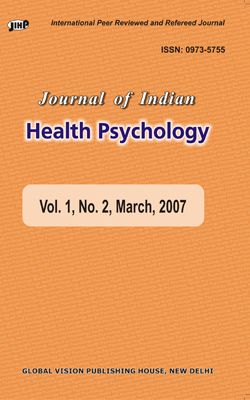

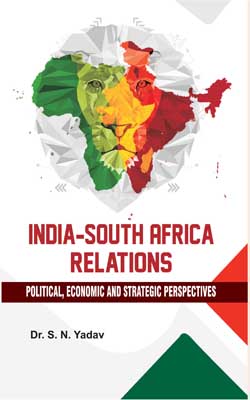

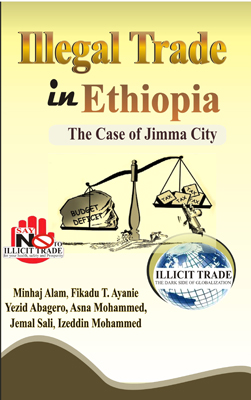


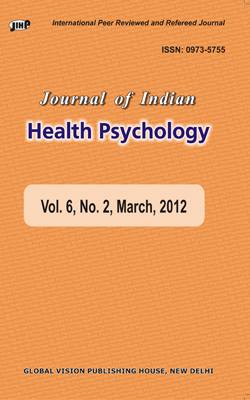
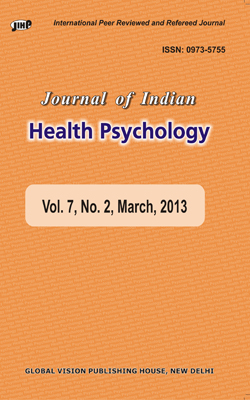
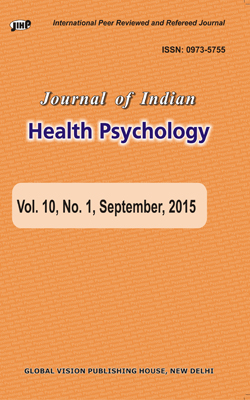
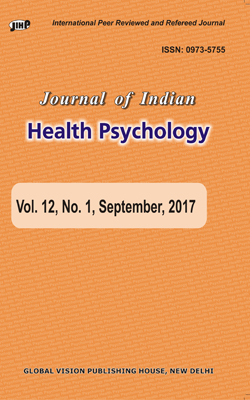
Reviews
There are no reviews yet.